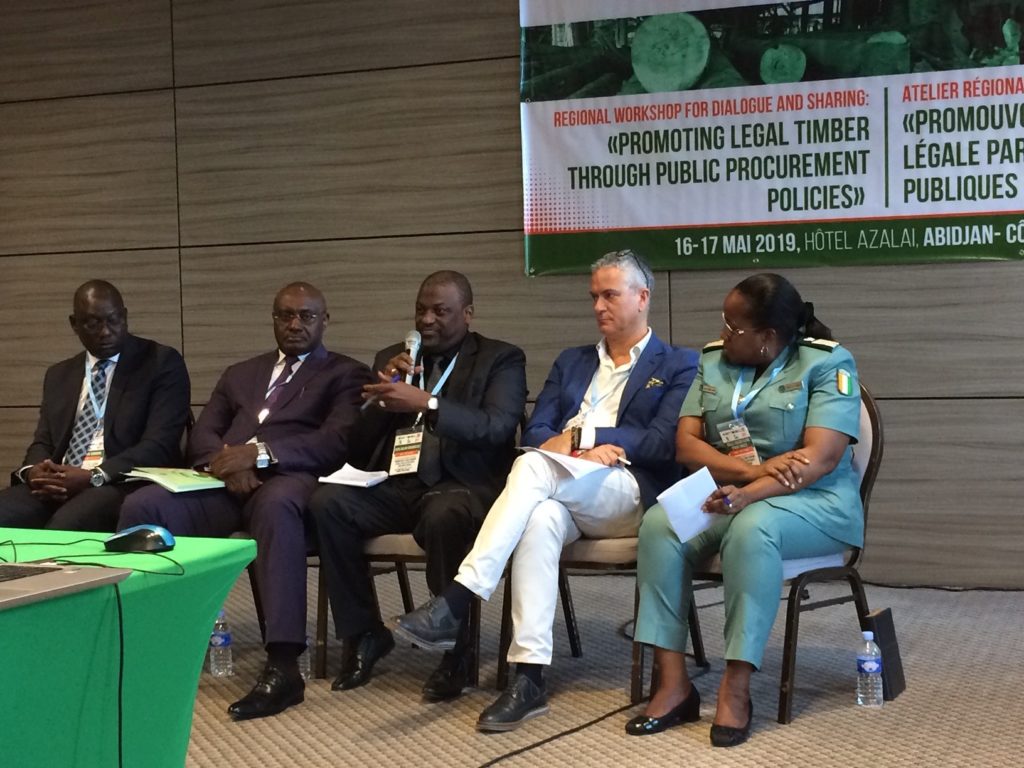

24.05.2019
The FAO held a regional workshop, last 16 and 17 may in Abidjan (Côte d’Ivoire) about public procurement politics for legal wood. ATIBT, GFBC, SPIB and UFIGA participated to this workshop.
The total number of participants was about 80, and the workshop allowed enriching exchanges of experiences.

Amongst the participants were for example the representatives of governments and development aid partners. They explained that although the policy documents of financial partners and the call for tender documents contain environmental clauses, in reality their attention is focussed on transparency in the treatment of the proposals and on proposed prices.
It therefore is important that in the call for tender documents, the agreements, and the monitoring of the execution of agreements, a special attention is drawn to the legality of wood in the chain of custody.
In order to balance offer and demand of legal wood on domestic markets, several suggestions have been made:
During the transition period where forested countries seek to enforce local wood industry, and wood plantations in industrial countries need to become productive, the export of logs from Central Africa to West Africa could create a win-win situation for the forest sector economies of both sub-regions.